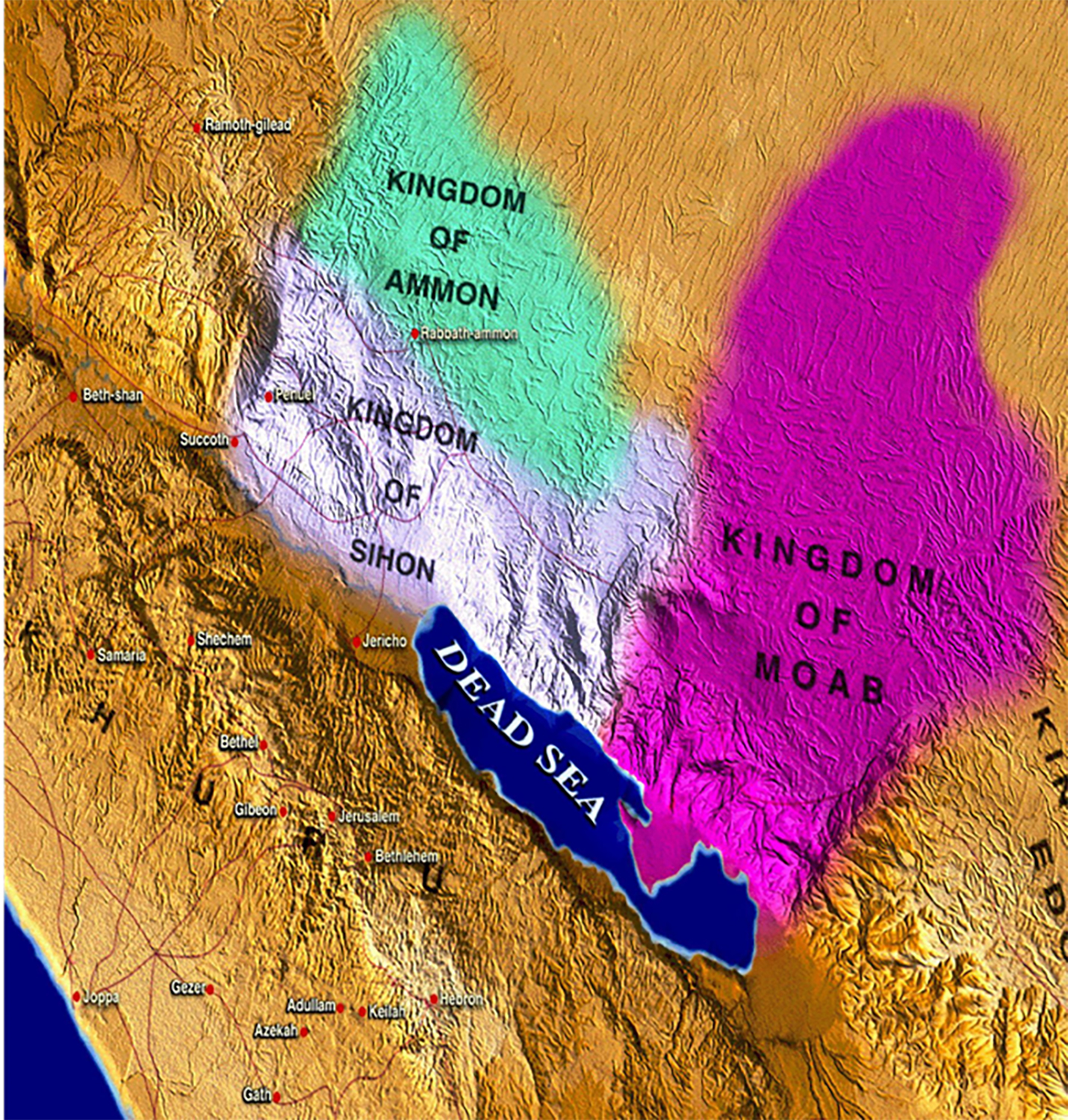And it came to pass, when all the kings of the Amorites, which were on the side of Jordan westward, and all the kings of the Canaanites, which were by the sea, heard that the Lord had dried up the waters of Jordan from before the children of Israel, until we were passed over, that their heart melted, neither was there spirit in them any more, because of the children of Israel. (Joshua 5:1)
Amorites.
That portion of Amorite territory to the east of Jordan had already been conquered (Num. 21:21-24); now the Amorites in the mountains to the west of Jordan trembled. The Amorites had constituted the second great wave of Hamites that moved out of the Arabian peninsula into the Mesopotamian valley during the early years of the second millennium B.C. There they broke up into two groups. One of these groups intermingled with the cultured Sumerians, and out of that union developed the great early Babylonian culture. The second group moved westward, and then south into Palestine, whence some of them spread across the Jordan River to the east (see on Gen. 10:16). Others remained in Palestine and intermingled with the native non-Semitic population. From this fusion came the Phoenicians, named in the LXX of Joshua 5:1, 12. Here they are described as being “by the sea,” where, in later years, we find the Phoenicians.
The Land of Canaan Before the Israelite Conquest

Until we were passed over.
The LXX reads, “when they passed over,” and the Syriac, “until they passed over.” The Masoretes in the margin corrected this passage to read, “until they passed over.” However, “we” seems to have been the original reading. If so, this would be evidence that the author of the book shared in the experience, despite the critical view of many modern scholars.
Their heart melted.
The mighty works of God struck fear to the hearts of the Canaanites and dispirited them, as He had promised (Ex. 23:27). The Jordan had been their line of defense. Furthermore, the Israelites had camped east of Jordan for months without making any attempt to cross over, with the result that the Amorites felt secure, especially now that the river was in flood stage. For this reason they set no guard to hinder the crossing. Even though their hearts had “melted” before, as Rahab admitted (ch. 2:11), they had maintained a degree of courage. They trusted, no doubt, in their numbers and in their fortified cities to repel the invaders. But when they heard that Israel not only had crossed the Jordan, thus breaking through their supposed defense, but had been able to do so as the result of a divine miracle, their hearts utterly failed them. “Neither was there spirit in them any more.”